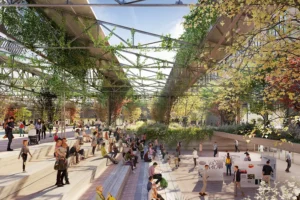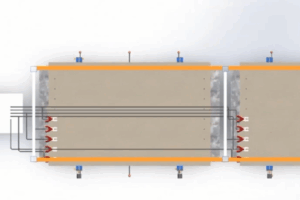- All
- Agricultura
- agrotech (antiguo)
- Agrotech (antiguo)
- Agua
- Alimentación, agricultura y medio marino
- Automoción
- Big Data
- Biomateriales
- blockchain
- Ciberseguridad
- Economía Circular
- Enertronic
- Enertrònica
- Food, agriculture and the marine environment
- Green Car
- IAQ
- ict
- Indoor air quality
- Industria 4.0
- Industry
- Inteligencia Artificial
- Internet of Things
- Materiales de frontera
- microxips
- Mobile Technologies
- Open innovation
- Óptica y fotónica
- Qualitat de l’aire interior (IAQ)
- Realidad Virtual y Realidad Aumentada
- Robótica y Visión
- Sector Salut
- Smart City
- Smart Grids
- Technology
- Tecnologías de Agrotech
- Tecnologías de Infraestructuras
- Tecnologías de la Energía
- Tecnologías de la Producción
- Tecnologías de la Química
- Tecnologías de la Salud
- Tecnologías de la Transformación Digital
- Tecnologías de Logística y Movilidad
- Tecnologías de los Materiales
- Tecnologías de Urbanismo y Sostenibilidad
- Tecnologías del Medio Ambiente
- Tecnologías Químicas y de la Alimentación
- Water
- X
- Researchers from the Concrete Sustainability and Smart Structures (C3S) research group, part of the Construction Engineering (EC) group at the Universitat Politècnica de Catalunya - BarcelonaTech (UPC), are leading the CIRC-BOOST project, which aims to promote sustainability, industrial competitiveness and greater resource efficiency in the European construction sector.
- The Structural and Materials Technology (ATEM) research group at the Universitat Politècnica de Catalunya - BarcelonaTech (UPC) is participating, in collaboration with the Universitat de les Illes Balears (UIB), in the ReINfoRCed project, which aims to promote the extension of the service life of reinforced concrete structures affected by corrosion.
- The UPCxels project, led by the Intelligent Data sciEnce and Artificial Intelligence Research Group (IDEAI-UPC) at the Universitat Politècnica de Catalunya - BarcelonaTech (UPC), aims to create an open, cross-sectoral platform for a shared data space across multiple fields, with a special focus on the agri-food sector.
- A multidisciplinary research team led by the Intelligent Data sciEnce and Artificial Intelligence Research Group (IDEAI-UPC) at the Universitat Politècnica de Catalunya - BarcelonaTech (UPC) is participating in the Agrixels project, which aims to create an agricultural information standard—essentially, a data ecosystem—designed for AI-based services in the agri-food sector.
- The Food Safety and Control Research Center (CRESCA) at the Universitat Politècnica de Catalunya – BarcelonaTech (UPC), in collaboration with the Aquamaris Foundation, has developed a system that allows irrigation using seawater without the need for filtration, desalination, or chemical treatment, both in agriculture and gardening. The new system enables the adaptation of ornamental garden plants and leafy vegetable crops, eliminating the need for fresh water entirely.
- The Environmental Engineering (ENMA) research group leads the WhATTer project with the aim of developing an innovative and sustainable solution for the treatment of textile wastewater through an electrochemical/alkaline electrolysis system that allows for simultaneous hydrogen production. The project is carried out in collaboration with the Textile Technology (TECTEX) and Polymeric Materials and Textile Chemistry (POLQUITEX) research groups at the facilities of the Institute of Textile Research and Industrial Cooperation of Terrassa (INTEXTER) at the Universitat Politècnica de Catalunya - BarcelonaTech (UPC).
- The Innovation in Materials and Molecular Engineering – Biomaterials for Regenerative Therapies (IMEM-BRT) research group at the Universitat Politècnica de Catalunya – BarcelonaTech (UPC), in collaboration with the Institute of Chemical Research of Catalonia (ICIQ), has developed polymer resins derived from plant-based materials to reduce the dependence of 3D printing on fossil fuel-based resins.
- The Tecnologia Orientada a la Comunitat (TOC) research group at UPC, in collaboration with the Centre d'Estudis Porcins de Catalunya, leads the AEROFER project, which aims to demonstrate the viability of liquid fertilisers derived from pig manure in aeroponic cultivation, with the intention of later extrapolating it to conventional crops, thereby closing the loop from waste to resource, with a positive environmental impact on the region.
- The Maritime Engineering Laboratory at UPC (LIM) participates in a European project that will help improve the management of plastic pollution in the north-western Mediterranean and raise environmental awareness among citizens about marine preservation.
- The project, led by the Paper Engineering Research Group (CELBIOTECH) at the Universitat Politècnica de Catalunya - BarcelonaTech (UPC), aims to obtain different subproducts from the waste generated during industrial hemp cultivation, also known as hemp fibre. The proposed processes are technologies already used in biorefineries and the paper industry but with different raw materials.
- Microalgae-based wastewater treatment systems have demonstrated the ability to recover nutrients from wastewater and produce valuable biomass for agricultural applications while also recovering energy through the anaerobic digestion of residual biomass. In the Cyan2Bio project, in which the Group of Environmental Engineering and Microbiology (GEMMA) of the Universitat Politècnica de Catalunya - BarcelonaTech (UPC) is participating, an additional step will be taken in the valorisation of microalgae biomass to obtain biopolymers suitable for transformation into bioplastics alongside pigments, thereby replacing fossil-based materials.
- The energy transition is reshaping the foundations of the power grid, driven by the massive deployment of renewable generation based on power electronics and the gradual disconnection of conventional fossil-based generation. In this context, grid operators will require support systems to provide flexibility, as renewable generation is highly variable.
- The Biological Treatment of Gaseous Pollutants and Odours Group (BIOGAP) at UPC is participating in the BIOMETCRI project, which aims to implement an innovative biotechnological process to recycle batteries from electric and hybrid vehicles, recovering valuable metals such as cobalt, lithium, nickel, and manganese.
- Since the early 21st century, the agricultural sector has faced significant challenges, such as the increasing demand for quality products and a lack of generational replacement. In this context, the agri-food sector is compelled to follow the example of other industries and prioritise digitalisation and automation to ensure sustainability and competitiveness.
- The project, led by the Centre for Advanced Technologies in Mechanics (CATMech) research group at UPC, aims to minimise the by-product waste in hemp cultivation through the development of a competitive industrial plant, reduce energy consumption, and increase comfort in buildings through research into innovative insulation panels in bioconstruction.
- The Group of Environmental Engineering and Microbiology (GEMMA) at UPC is leading the PROALGAE project, aimed at producing new alternative proteins from biomass derived from microalgae and cyanobacteria cultivated using by-products from the agri-food industry. These alternative proteins aim to provide a sustainable ingredient to meet the growing global demand for protein, applicable in the development of food and feed.
















